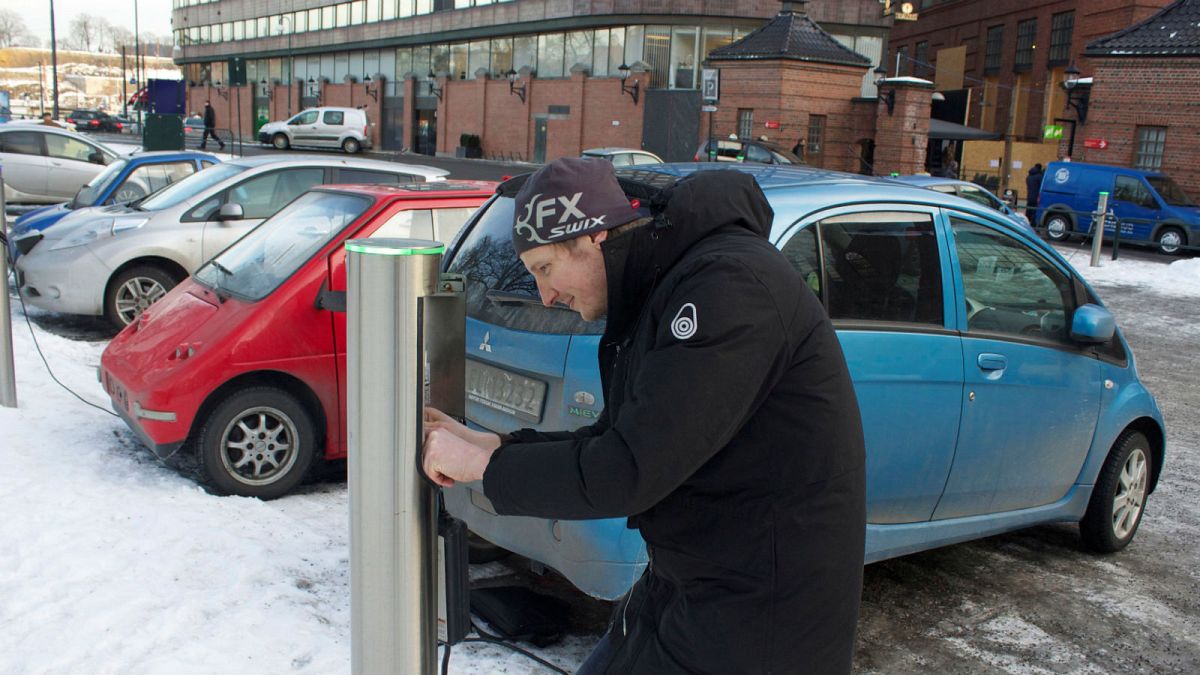Its wealth is built on fossil fuels, yet Norway is leading Europe and the world when it comes to electric cars.
Oil-rich Norway has accelerated away from Europe in the race to switch over to electric-powered cars, latest figures show.
It notched up a record 8,034 emission-free vehicles in March, which represented 55.8% of all new car registrations in the month.
Finland, which is similar to Norway in terms of population, registered 3,055 electric cars across the whole of 2017.
Experts say Oslo’s carrot-and-stick approach to incentivising electric cars has seen their popularity surge in recent years.
It has pushed manufacturers towards electric by imposing strict pollution limits and saying all new cars sold by 2025 must be emission-free.
“The other part is the carrot — the subsidies,” said Yoann Le Petit, clean vehicles officer at Transport and Environment.
“When you buy an electric vehicle you don’t pay the registration tax or VAT. There are in-use benefits too. In Norway there are many toll roads and you don’t pay these. You can also have free parking.
“There are a whole set of incentives that will drive you towards this alternative. It’s a rational option for the consumer to buy electric.”
The net result is Norway, a country whose wealth is based on fossil fuels, has become a world leader for electric cars.
Norwegian car sales in 2017 were topped by the Volkswagen Golf , BMWi3, Toyota Rav4 and Tesla Model X (TSLA.O).
The Tesla is pure electric and others have electric or hybrid versions.
In many countries, high prices of battery-driven cars, limited ranges between recharging and long charging times discourage buyers. Carmakers say the disadvantages are dwindling over time with new models.
“We view Norway as a role model for how electric mobility can be promoted through smart incentives,” a spokesman at BMW’s Munich HQ said. “The situation would probably be different if these incentives were dropped.”
Sales of diesel cars in Norway fell most in 2017, to 23% from 31% in 2016. Some regions in the country have started to charge higher road tolls for diesel cars than for petrol-driven vehicles.
Norway’s electric car policies are hard to imitate: it can be generous because high revenues from oil and gas production.
Le Petit said other European countries — such as Germany — had been reluctant to move to electric in a bid to protect its car industry.
But, he added, we should not be naive about the benefits of electric cars.
He said that while studies had found they were more environmentally-friendly than vehicles powered by fossil fuels, there were still concerns.
“The challenge is to make sure your electricity comes from renewables and to ensure that the components — such as the batteries — are sourced in an environmentally and sustainable way,” said Le Petit.
“Recycling is also important. Once you have all these batteries on the market there will be a business case to recycle them and keep the materials within the EU.”
